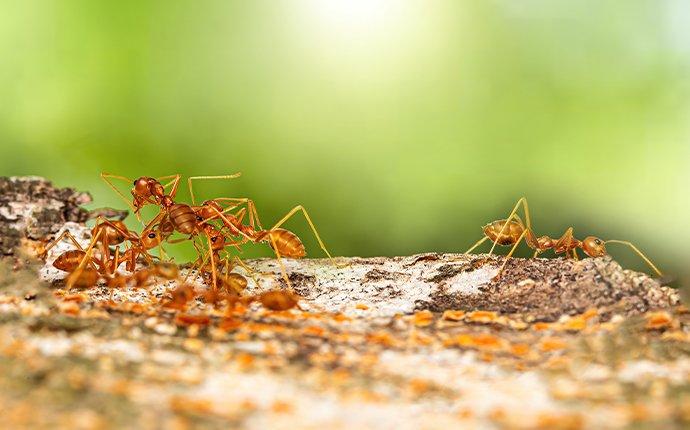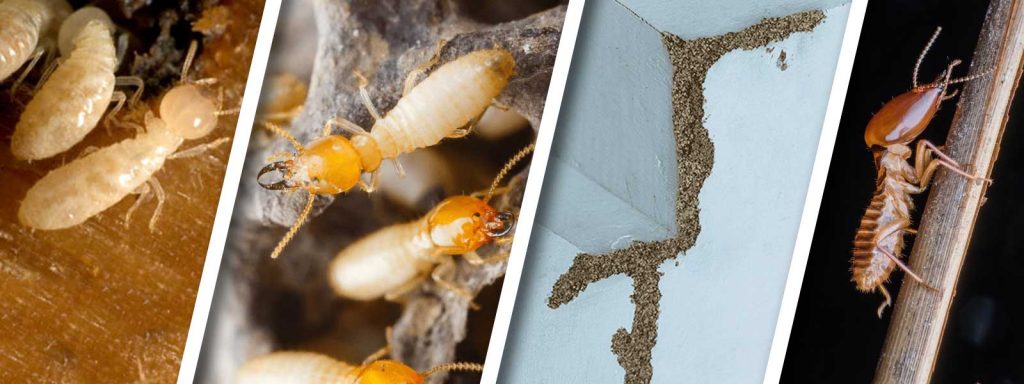Comprehensive Termite Control: Safeguard Your Property with Expert Services
Comprehensive Termite Control: Safeguard Your Property with Expert Services
Blog Article
Environmental Impact of Pest Control: Harmonizing Efficiency With Sustainability
The ecological impact of parasite control is a critical problem that needs a delicate equilibrium in between achieving effectiveness in handling parasites and making sure sustainability of our ecological communities. From the usage of hazardous chemicals that leak right into our dirt and water to the unplanned consequences on non-target species, the repercussions of standard parasite control techniques are far-ranging.
Harmful Chemicals in Pest Control
The usage of dangerous chemicals in bug control positions considerable ecological and health risks that call for careful consideration and reduction approaches. Herbicides, chemicals, and insecticides are typically utilized to get rid of parasites, however their prevalent application can cause unintended consequences. These chemicals can contaminate dirt, water sources, and the air, impacting not only the targeted parasites but likewise beneficial pests, wildlife, and human beings.

To resolve these threats, incorporated parasite monitoring (IPM) strategies are being advertised as a much more lasting option. IPM includes a combination of methods such as biological control, environment control, and the targeted use pesticides as a last resource (ant control forest nc). By adopting a holistic strategy to pest control, we can decrease the environmental and health impacts connected with harmful chemicals while properly handling pest populations
Influence on Non-Target Types
Considering the unexpected consequences of insect control methods, the influence on non-target species is an important element that requires detailed assessment. While pest control procedures intend to target details pests, various other microorganisms in the community might be unintentionally influenced. Non-target species, consisting of useful pests, birds, mammals, and also plants, can suffer indirect or straight harm from chemical applications or biological control approaches.
Pesticides created to battle a certain bug pest might hurt pollinators like or natural predators such as ladybugs. Biological control agents, if not species-specific, can present threats to unplanned targets, interfering with the eco-friendly equilibrium.
To minimize the influence on non-target species, incorporated parasite monitoring (IPM) approaches that stress an all natural technique to pest control are suggested. These approaches focus on making use of ecologically friendly methods, lessening injury to advantageous organisms while effectively taking care of pest populations. Carrying out extensive danger assessments and keeping track of the outcomes of parasite control initiatives are crucial action in securing non-target species and advertising general ecosystem health and wellness.
Dirt and Water Contamination
Unintended environmental effects of parasite control approaches prolong beyond influencing non-target types, with significant effects for soil and water contamination. Pesticides, herbicides, and chemical fertilizers made use of in bug control can leach into the soil and infect groundwater, positioning a threat to both terrestrial and water communities. Dirt contamination can interfere with the balance of microorganisms important for vitamins and mineral biking and plant development, causing decreased soil fertility and performance. In addition, these chemicals can continue the environment for extensive durations, accumulating in the soil and possibly getting in the food cycle.
Water contamination is an additional essential problem linked with pest control methods. To alleviate soil and water contamination from bug control activities, incorporated insect monitoring methods that focus on sustainability and reduce chemical inputs are crucial.
Air Air Pollution From Chemical Use
Direct exposure to air-borne pesticides during farming applications poses a significant concern for air pollution control measures. Furthermore, chemical her latest blog drift, where chemicals are lugged by the wind to unintended areas, can lead to the contamination of nearby environments and water bodies.

Strategies for Lasting Pest Control
In the realm of agricultural practices, applying sustainable insect control methods is paramount for maintaining environmental equilibrium and guarding crop yields. Sustainable insect control highlights using environmentally friendly approaches to take care of pest populations efficiently while reducing injury to non-target microorganisms and ecosystems. Integrated Insect Administration (IPM) is a commonly embraced technique that incorporates organic, social, physical, and chemical control techniques to attain lasting pest management solutions.
Crop turning and diversity are likewise effective techniques to disrupt pest life cycles and develop less favorable problems for insects to grow. Eventually, by incorporating these sustainable pest control methods, farmers can attain a balance in between pest administration effectiveness and environmental stewardship.
Final Thought
In verdict, the environmental effect of insect control approaches should be meticulously thought about to stabilize effectiveness with sustainability. Harmful chemicals utilized in parasite control can lead to soil and water contamination, air contamination, and harm non-target varieties - termite control. It is crucial to carry out lasting parasite control techniques to lessen these unfavorable results on the environment and promote a much healthier ecological community for future generations
By adopting an alternative technique to pest control, we can reduce the ecological and wellness impacts connected with dangerous chemicals while properly managing pest populations.

To reduce the air pollution triggered by chemical use, it is crucial to embrace incorporated insect management approaches that prioritize the usage of non-chemical bug control techniques, such as plant rotation, all-natural predators, and immune plant ranges. Lasting pest control highlights the usage of environmentally pleasant approaches to manage insect populaces effectively while decreasing harm to non-target organisms and ecological communities. Integrated Insect Administration (IPM) is an extensively adopted approach that incorporates organic, cultural, physical, and chemical control techniques to accomplish lasting pest administration options.
Report this page